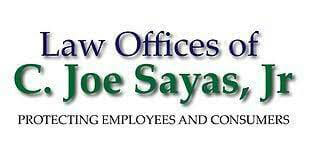Protecting workers who uphold the rights of their colleagues

Jeremiah Matthews worked as a cook and a maintenance supervisor for Happy Valley Conference Center. Happy Valley is an affiliate of the Community of Christ Church and hosts seminars, retreats, and camps for church members in their property.
Mathews was supervised by the executive director, Melinda Gunnerud. Gunnerud frequently flirted with younger male employees. Gunnerud had sent a dishwasher named Eli sexually suggestive text messages.
Another employee, Brett, began working at Happy Valley after Eli left. Gunnerud took Brett on shopping errands, a task she used to do alone. Brett testified that he started to feel like he was receiving special treatment from Gunnerud. The treatment made him feel “kind of strangely.” Gunnerud began sending him personal text messages after work hours, which eventually focused on “more and more suggestive” topics, which made him uncomfortable.
Brett confided in Mathews about the inappropriate text messages he received from Gunnerud. Brett and Mathews reported the text messages up the chain of command, which eventually reached the Church’s general counsel, Karen Minton. Mathews and Brett told Minton that they feared retaliation by Gunnerud. Minton believed the messages constituted sexual harassment. She asked an executive committee member, Smith, to investigate. Smith reviewed the text messages Gunnerud had sent and thought they were “joke[s] in poor taste” rather than sexual harassment. Smith believed that Mathews was trying to make trouble by reporting Gunnerud.
Even though the Church President thought the texts were “borderline” harassment, he followed Smith’s recommendation. Gunnerud was simply reprimanded and ordered to undergo sex harassment training. Gunnerud kept her position and continued to have supervisory authority over Mathews and Brett.
Mathews claimed that Gunnerud then began a “witch hunt” by asking employees to write complaints about him so he could be fired. Mathews emailed Minton stating his dissatisfaction with the sexual harassment investigation. He told Minton he will pursue “state and federal complaints.” He then emailed the US Equal Employment Opportunity Commissions about being retaliated against for reporting the sexual harassment of another employee. Mathews was placed under the supervision of another board member, who fired him a few days later for alleged insubordination and failure to complete his tasks.
Mathews sued, alleging wrongful termination based on retaliation, including a violation of California’s Whistleblower Protection Act.
The law protects whistleblowing employees from retaliation by their employers. It provides for civil liability against any person who threatens or retaliates against an employee for making a ‘protected disclosure.’ These disclosures include information provided to a government or law enforcement agency, where the employee reasonably believes that a violation of law has occurred. The employer cannot also retaliate against an employee who refuses to participate in activities that violate the law.
California’s anti-retaliation law protecting whistleblowers was expanded to cover employees who complain within a company about unlawful practices. It also applies to cases where the employee truly believed the conduct they complained about was unlawful, even if it was not.
Retaliation laws encourage potential whistleblowers to come forward and report corporate violations of the law. Without protection afforded to whistleblowing employees, government enforcement agencies and the public will not know about those corporate activities that endanger public health and safety.
After trial, the jury returned a verdict in favor of Mathews, awarding him almost $900,000 in damages (including punitive damages) and nearly $1 million in attorney’s fees.
The Law Offices of C. Joe Sayas, Jr. welcomes inquiries about this topic. All inquiries are confidential and at no-cost. You can contact the office at (818) 291-0088 or visit www.joesayaslaw.com or our Facebook page Joe Sayas Law. [C. Joe Sayas, Jr., Esq. is an experienced trial attorney who has successfully recovered wages and other monetary damages for thousands of employees and consumers. He was named Top Labor & Employment Attorney in California by the Daily Journal, consistently selected as Super Lawyer by the Los Angeles Magazine, is the recipient of PABA’s Community Champion Award, and is a Presidential Awardee for Outstanding Filipino Overseas in 2018.]

